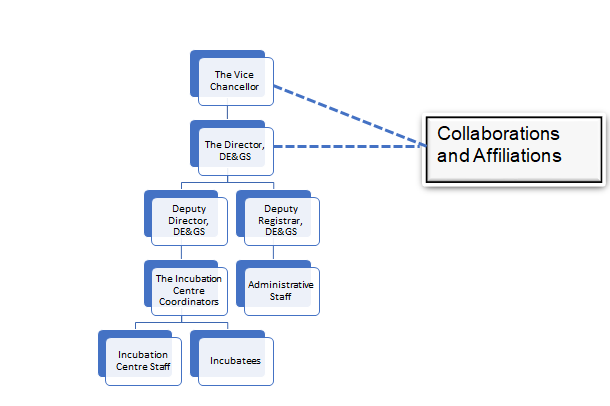The Directorate for Entrepreneurship and General Studies (DE&GS) was established on the 11th May 2017 as Centre for Entrepreneurship and General Studies (CE&GS). Based on the activities of the Centre the nomenclature was changed by the University Management from Centre for Entrepreneurship and General Studies to Directorate for Entrepreneurship and General Studies (DE&GS) on 21st May 2019. First and foremost, the Directorate being an arm of the university services NOUN students in acquiring general skills that will lead to lifelong learning and employability. Secondly, the Directorate provides services for the general community through training, consultancy, and research.
Therefore, the mandate of the Directorate is to inculcate lifelong learning skills, create entrepreneurs by inculcating entrepreneurial skills, helping the students to discover their creativity and innovation, take initiative, utilise possibilities, take risk and responsibilities.
Vision
To be regarded as the foremost entrepreneurship and general study centre anchored by the university to provide sustainable entrepreneurial skills and general knowledge through comprehensive reach that exceeds all barriers.
Mission
To provide functional cost-effective flexible learning which adds life-long value to students’ entrepreneurial initiative, creativity, research, and innovation?
Motto
Explore. Develop. Deliver.
